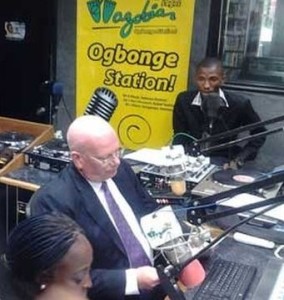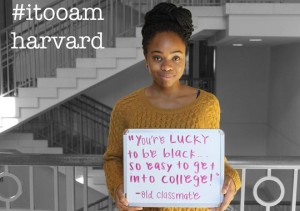It’s not what you expect from the U.S. Diplomatic Corps, an ambassador who gives an interview in which he speaks what sometimes is described as “broken English”. This was Ambassador to Nigeria James F. Entwistle speaking in an interview on Nigerian radio. What he spoke (only in short segments) was pidgin English, a broadly spoken version of the language used across West Africa. Entwhistle was interviewed on Nigeria’s Wazobia FM, the first radio station in Nigeria to broadcast in pidgin English. When asked about Nigeria’s controversial anti-gay legislation, he responded:
“The U.S. government no say sanction go dey for Nigeria, because of same-sex palava-o.”
In other words, the U.S. is not going to impose sanctions on Nigeria for passing the law. When Entwhistle was asked about the U.S. position on the upcoming election in Nigeria, he asserted U.S. neutrality in these terms:
“Make I tell you say U.S. no get any candidate for mind. The only ting wey go sweet us be say make the election dey transparent, credible and concluded. Make Nigerians pick candidates wey go sweet their belle, wey go do well well for them.”
The Ambassador’s use of pidgin was much appreciated at the radio station and presumably by everyday Nigerians as well. Even if they may not have agreed with his positions, they certainly liked to hear the ambassador of a major power speak their language. As can be seen from the examples above, Nigerian Pidgin is quite distinct from standard English, in vocabulary, pronunciation, and grammar. The Pidgin English School offers video lessons in the language. It is certainly to the Ambassador’s credit that he has made the effort to be able to understand Nigerian Pidgin and speak it somewhat as well.
YouTube video of interview:

